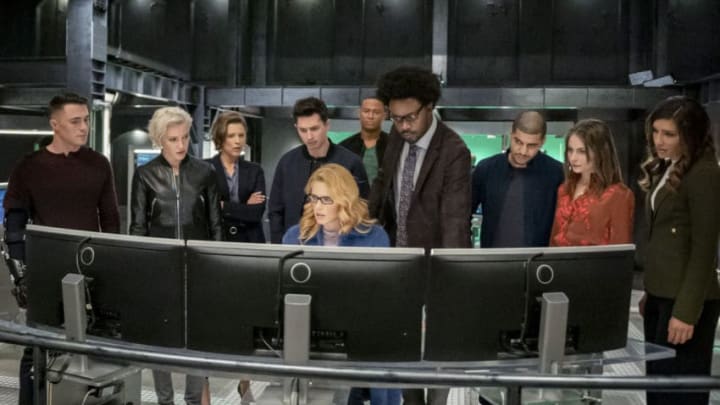Stephen Amell’s contribution to the landscape of superhero TV is a large one, and Arrow’s ending signals the end of an era.
I didn’t watch Arrow that often. I’ve only seen the first two seasons all the way through, and then the Arrowverse crossovers each year. You have to budget for only so much time in your TV diet and, for various reasons, it didn’t make the cut. But I do have a rough outline of the major events each season, helped by the weekly reviews of my colleagues here at Bam Smack Pow.
But it was a tremendously well-done show, and Oliver Queen (Stephen Amell) rightfully was the key to the Arrowverse in the same way that Tony Stark (Robert Downey Jr.) was to the MCU.
The first two seasons are almost Shakespearian in Oliver’s grand quest to get revenge on his father’s enemies while, at the same time, tackling the inner turmoil of dealing with the consequences of his past actions and navigating everyone else’s perceptions and expectations for him after returning from Lian Yu.
Gradually, after teaming up with Diggle (David Ramsey) and Felicity (Emily Bett Rickards), but especially so after Tommy’s (Colin Donnell) death in “Sacrifice” (1.22), Oliver’s violent and self-destructive tendencies are toned down as he learned mercy.
This was further accelerated after meeting Barry Allen (Grant Gustin) in the second season. Ultimately, the contrast between Barry’s naivety and blatant optimism and Oliver’s pessimistic and battle-scarred way of seeing life has been one of the highlights of the Arrowverse.
In 2012, when Arrow first aired, the idea of live-action superhero TV was pretty much dead once Smallville finally wrapped up. Or if it wasn’t, the general public thought of something cheesy like the 1970s Lynda Carter Wonder Woman (there’s a place for shows like that, but thank goodness the quality has improved since).
Arrow‘s beginning showed that a deep, sprawling and multilayered story based on comic book characters could work if the character relationships were strong enough and, now at Arrow‘s ending, the TV landscape as a whole is much better for it.
The action scenes were very violent, predating the brutality of Daredevil, but they fit the grounded and gritty landscape of Starling City. Also, archery is so much cooler visually and creatively during fights than simply using a gun all of the time.
More from Arrowverse
- The 9 best (and 8 worst) Arrowverse characters
- 27 best fighters in the Arrowverse, ranked
- All 8 Black Canary actresses ranked from worst to best
- 11 things nobody wants to admit about the Arrowverse
- The 7 best (and 6 worst) Arrowverse villains
Rickards’ performance as Felicity and Willa Holland’s portrayal of Thea often get overlooked, but they both brought significant acting ability to the series and provided a sense of structure in Oliver’s life. This was never more clear than with Ollie striving to set a good example for and protecting his little sister and with Felicity progressing from his co-worker in vigilante activities to becoming his wife.
Stephen Amell not only promoted the show using all the usual outlets but also appeared in a WWE match and on American Ninja Warrior, making audiences of those shows curious enough to check out what the Arrowverse entailed.
It was also interesting that Amell’s cousin Robbie also had a presence in the Arrowverse in the recurring Flash role of half of Firestorm. This alone possibly led to several other relatives of prominent cast members getting small roles.
The interconnectivity of the Arrowverse shows has been something that Marvel TV didn’t ever quite find yet, at the same time, each show remains its own thing. The Flash is lighthearted, Supergirl is cheerful and earnest, and Legends is a zany roller coaster. None of that would have happened without Arrow blazing the trail.
With Oliver’s death, the Arrowverse loses one of its greatest heroes and though the torch has been passed onto his daughter, Mia, things won’t ever be the same.
